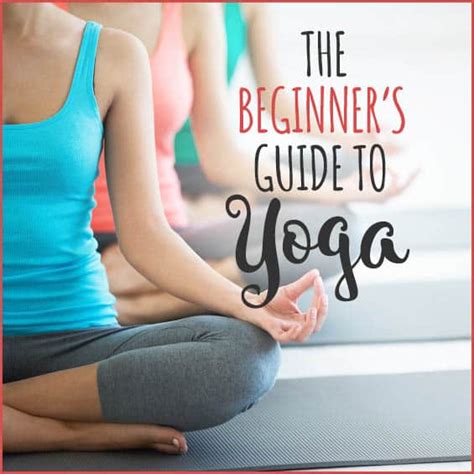What is a yoga retreat?
A yoga retreat is a unique opportunity to fully immerse yourself in the practice of yoga, surrounded by nature and away from the distractions of everyday life. It is a getaway that allows you to focus on your physical, mental, and spiritual well-being. Whether you are a seasoned yogi looking to deepen your practice or a beginner seeking a rejuvenating experience, a yoga retreat offers a space for self-discovery, relaxation, and personal growth.
One of the key benefits of attending a yoga retreat is the chance to disconnect from the outside world and reconnect with yourself. Without the usual distractions of work, technology, and responsibilities, you are able to truly be present and fully engage in the practice of yoga. The serene and tranquil environment provided by a yoga retreat allows you to find inner peace, reduce stress, and find clarity of mind. It provides an escape from the hustle and bustle of daily life, offering a temporary refuge for self-care and reflection.
Attending a yoga retreat also offers the opportunity to expand your yoga practice and learn from experienced teachers. Retreats often feature a variety of yoga styles and workshops, allowing you to explore different techniques and deepen your understanding of the practice. Whether it’s through invigorating vinyasa flows, gentle yin sessions, or insightful meditation practices, you can expand your knowledge and skills under the guidance of expert instructors.
- Immerse yourself fully in the practice of yoga
- Disconnect from the outside world and reconnect with yourself
- Reduce stress and find inner peace
- Expand your yoga practice and learn from experienced teachers
- Explore different yoga styles and techniques
- Engage in workshops and deepening sessions
| Benefits of Attending a Yoga Retreat |
|---|
| Opportunity to fully immerse in yoga practice |
| Escape from daily life and find peace |
| Expand yoga knowledge and skills |
| Learn from experienced instructors |
| Explore different yoga styles and techniques |
| Engage in workshops and deepening sessions |
Benefits of attending a yoga retreat
A yoga retreat is a wonderful way to immerse yourself in the practice of yoga and reap numerous benefits for your mind, body, and overall well-being. Attending a yoga retreat can provide you with a unique opportunity to deepen your yoga practice and connect with like-minded individuals in a serene and tranquil environment.
One of the key benefits of attending a yoga retreat is the chance to step away from your daily routine and responsibilities. In our fast-paced and hectic lives, it can be challenging to find time for self-care. A yoga retreat allows you to give yourself the gift of dedicated time and space to focus on your physical and mental health.
Another advantage of attending a yoga retreat is the opportunity to disconnect from technology and reconnect with nature. Many retreats are set in idyllic locations surrounded by natural beauty, such as mountains, beaches, or peaceful countryside. Being in such tranquil surroundings can help you find inner peace, reduce stress, and enhance your yoga practice.
Additionally, participating in a yoga retreat provides the chance to deepen your yoga practice and learn from experienced and knowledgeable yoga instructors. You may have the opportunity to attend workshops, receive personalized guidance, and explore different styles and aspects of yoga. This can help you refine your technique, expand your knowledge, and take your practice to the next level.
Moreover, a yoga retreat offers the chance to connect with a supportive community of fellow yogis. During the retreat, you can bond with others who share your passion for yoga, exchange insights and experiences, and create lasting friendships. The sense of unity and belonging that comes from being part of a yoga community can be incredibly fulfilling and inspiring.
In conclusion, attending a yoga retreat can bring about numerous benefits for your physical, mental, and emotional well-being. It offers a precious opportunity to step away from your daily routine, reconnect with nature, deepen your practice, and connect with like-minded individuals. Consider treating yourself to a yoga retreat and experience the transformative power it can have on your life.
Cost considerations for a yoga retreat
When planning a yoga retreat, one of the key factors to consider is the cost. While the benefits of attending a yoga retreat are numerous, it’s important to be mindful of your budget and make informed decisions. Here are some cost considerations to keep in mind:
1. Accommodation: The type of accommodation you choose will greatly impact the cost of your yoga retreat. Options can vary from luxury resorts to budget-friendly guesthouses or even camping. It’s important to assess your preferences and budget before making a decision.
2. Location: The location of the yoga retreat plays a significant role in determining the overall cost. Retreats in exotic destinations or popular tourist spots may be more expensive compared to those in less well-known locations. Consider if you’re willing to pay extra for a specific destination or if you’re open to exploring more affordable options.
3. Retreat Package: The package offered by the retreat can vary in terms of inclusions and pricing. Some packages may include meals, activities, or spa treatments, while others may only provide yoga classes. Carefully review what is included in the package to ensure it aligns with your expectations and budget.
4. Additional Expenses: Remember to factor in additional expenses such as transportation, visa fees (if applicable), and any extra activities or excursions you plan to participate in during your retreat. These costs can add up, so it’s important to consider them when budgeting for your overall yoga retreat expenses.
List of Cost Considerations for a Yoga Retreat:
- Accommodation
- Location
- Retreat Package
- Additional Expenses
Table: Cost Comparison of Yoga Retreats
| Retreat | Accommodation Type | Location | Package Inclusions | Cost |
|---|---|---|---|---|
| Retreat A | Luxury Resort | Bali, Indonesia | Meals, Spa, Yoga Classes | $2000 |
| Retreat B | Guesthouse | Costa Rica | Yoga Classes | $1000 |
| Retreat C | Camping | Thailand | Meals, Yoga Classes | $800 |
Remember, the cost of a yoga retreat is not solely determined by the numbers. It’s essential to assess the value and experience you will gain from attending the retreat. Take into consideration your personal preferences, budget, and the overall value provided by the retreat when making your decision. By considering these cost factors, you can choose a yoga retreat that aligns with your financial goals and still offers a transformative and enriching experience.
What to expect during a yoga retreat
Attending a yoga retreat can be a transformative experience, allowing you to immerse yourself in the practice and reap the benefits of focused practice and personal growth. But what can you expect during a yoga retreat? Let’s take a closer look at what a typical yoga retreat entails.
1. Daily Yoga Classes:
Yoga retreats typically offer daily yoga classes led by experienced instructors. These classes are designed to cater to individuals of all skill levels, from beginners to advanced practitioners. Whether you’re looking to deepen your practice or discover yoga for the first time, the retreat will provide a supportive environment to do so.
2. Meditation and Breathwork:
Alongside yoga classes, most retreats incorporate meditation and breathwork sessions into the schedule. These practices help to calm the mind, increase self-awareness, and improve overall mental well-being. Expect to learn different techniques and spend time in silent reflection.
3. Healthy Meals and Nourishment:
One of the highlights of a yoga retreat is the opportunity to enjoy delicious and nutritious meals. Retreat centers often prioritize organic and locally sourced ingredients, providing a range of vegetarian or vegan options. Eating mindfully and nourishing your body through food is an integral part of the retreat experience.
4. Free Time for Relaxation:
While yoga retreats are packed with activities, it’s also important to have time for relaxation. Retreat programs often include free time to explore the surroundings, read a book, or simply unwind. Take advantage of this time to connect with nature, take a dip in a pool, or enjoy a peaceful walk.
5. Connection and Community:
One of the most valuable aspects of a yoga retreat is the opportunity to connect with like-minded individuals. Although retreats can be a solo journey, the sense of community is usually fostered through shared experiences, group activities, and communal meals. Expect to make new friendships and form lasting bonds.
| What to Expect | Benefits |
|---|---|
| Varied daily yoga classes | Deepen your practice and improve flexibility |
| Meditation and breathwork sessions | Enhance mental well-being and reduce stress |
| Delicious and nutritious meals | Nourish your body and develop a mindful approach to food |
| Free time for relaxation and self-reflection | Find inner peace and recharge |
| Connect with a supportive community | Create lasting friendships and expand your yoga network |
Overall, a yoga retreat offers a unique opportunity to step away from the demands of daily life and focus on your physical, mental, and spiritual well-being. With a carefully curated program that includes yoga, meditation, nourishing meals, and free time for relaxation, you can expect to return from a retreat feeling rejuvenated, inspired, and more connected to yourself and others.
Choosing the right yoga retreat for you
Going on a yoga retreat can be a transformative experience, but with so many options available, it can be overwhelming to choose the right one for you. Whether you are a seasoned yogi or a beginner looking to deepen your practice, there are a few key factors to consider when selecting a yoga retreat.
1. Location: The location of the retreat plays a significant role in determining the overall experience. Do you prefer a serene beach setting or a peaceful mountain retreat? Consider the surroundings and environment that will best inspire your practice and help you relax and rejuvenate.
2. Duration: Yoga retreats can vary in length, ranging from a weekend getaway to a week-long immersion. Think about how much time you can commit to your retreat and how it aligns with your schedule and personal goals. Longer retreats may provide a deeper level of immersion and the opportunity for significant breakthroughs in your practice.
3. Style and Focus: Different retreats may focus on specific yoga styles, such as Hatha, Vinyasa, or Kundalini. Consider what style resonates with you and aligns with your personal goals. Additionally, some retreats may have a specific focus, such as meditation or self-care. Identify what you hope to gain from the retreat and ensure the program aligns with your intentions.
4. Instructors and Teachers: The expertise and teaching style of the instructors can greatly impact your experience. Research the backgrounds and qualifications of the retreat’s teachers to ensure they align with your desired learning and growth. Look for teachers who have relevant certifications and experience in the specific yoga styles or practices you are interested in.
5. Amenities and Accommodations: Consider the amenities and accommodations offered during the retreat. Are you looking for a rustic and stripped-down experience, or do you prefer a more luxurious setting? Check if the retreat provides comfortable accommodation, healthy meals, and any additional features like spa services or excursions that can enhance your experience.
6. Budget: Cost considerations are crucial when choosing a yoga retreat. Retreats can range from budget-friendly to extravagant. Determine your budget beforehand and search for retreats that fit within your financial limitations. Remember to factor in additional expenses such as travel costs and extra activities or services not included in the retreat package.
| Title | Location | Duration | Style and Focus | Instructors and Teachers | Amenities and Accommodations | Budget |
|---|---|---|---|---|---|---|
| Yoga Retreat A | Tropical island | 7 days | Hatha yoga, meditation | Certified instructors with 10+ years of experience | Beachfront bungalows, organic meals, spa services | $2000 |
| Yoga Retreat B | Mountain retreat | 3 days | Vinyasa flow, self-care | Experienced teachers with mindfulness training | Cozy cabins, vegetarian meals, hiking trails | $800 |
| Yoga Retreat C | Secluded forest | 5 days | Kundalini yoga, sound healing | Well-known spiritual teacher and healer | Rustic cottages, vegetarian and vegan options, group bonfires | $1500 |
Frequently Asked Questions
What is a yoga retreat?
A yoga retreat is a getaway or vacation that focuses on practicing yoga and deepening one’s practice. It typically involves a combination of yoga classes, meditation, relaxation, and other activities related to wellness and self-care.
What are the benefits of attending a yoga retreat?
Attending a yoga retreat offers several benefits, including:
1. Immersion in yoga practice: Retreats provide an opportunity to practice yoga intensively, allowing for a deeper understanding and improvement of one’s practice.
2. Relaxation and rejuvenation: Retreats often take place in serene and peaceful locations, enabling participants to disconnect from daily life stressors and find a sense of relaxation and rejuvenation.
3. Personal growth and self-discovery: Retreats provide a supportive environment for self-reflection, self-care, and personal growth, allowing individuals to explore and connect with their inner selves.
4. Connection with like-minded individuals: Retreats offer an opportunity to meet and connect with people who share a similar interest in yoga and holistic wellness, fostering a sense of community and connection.
What should I consider in terms of cost when planning a yoga retreat?
When planning a yoga retreat, it is important to consider the following cost factors:
1. Accommodation and meals: Check if the retreat package includes accommodation and meals or if they are separate costs. Determine if the facilities and amenities provided align with your preferences and needs.
2. Travel expenses: Research the costs of airfare, transportation to and from the retreat location, and any additional travel expenses.
3. Retreat length: Longer retreats typically have higher costs, so consider the duration that suits your budget.
4. Teacher or instructor fees: Some retreats feature renowned instructors, which may affect the overall cost. Evaluate the value you place on learning from a specific instructor.
5. Additional activities or excursions: If the retreat includes additional activities or excursions, be aware of any additional costs associated with participating in those.
What can I expect during a yoga retreat?
During a yoga retreat, you can expect a well-rounded experience that includes:
1. Daily yoga classes: Retreats offer daily yoga classes, which may vary in style and intensity.
2. Meditation and mindfulness practices: Retreats often incorporate meditation and mindfulness practices as part of their program.
3. Workshops and teachings: Retreats may include workshops on specific yoga techniques, philosophy, or holistic wellness practices.
4. Free time for relaxation and exploration: Retreats typically offer some free time for relaxation, personal reflection, or exploring the surrounding area.
5. Nourishing meals: Many retreats provide healthy and nourishing meals that cater to various dietary preferences or restrictions.
6. Opportunities for connection and community: Retreats create an environment where participants can connect with like-minded individuals and foster a sense of community.
How can I choose the right yoga retreat for me?
Choosing the right yoga retreat requires careful consideration. Here are some factors to consider:
1. Location: Decide if you prefer a retreat in a natural setting, by the beach, in the mountains, or in an urban environment.
2. Retreat focus and style: Determine if you want a retreat focused on a specific yoga style, such as Ashtanga or Hatha, or if you prefer a more holistic wellness approach.
3. Teacher or instructor: Research the background and teaching style of the retreat’s instructors to ensure they resonate with your preferences and goals.
4. Retreat duration: Consider the length of the retreat and determine whether a shorter or longer duration aligns better with your schedule and goals.
5. Reviews and recommendations: Read reviews and testimonials from previous participants to gain insight into the quality and experience of a retreat.
6. Budget: Set a budget and consider the overall cost, including accommodation, meals, and any additional activities or treatments.
What are some tips for preparing for a yoga retreat?
Here are some tips to help you prepare for a yoga retreat:
1. Check the retreat schedule and requirements: Familiarize yourself with the retreat schedule, packing list, and any specific requirements or recommendations from the organizers.
2. Pack essentials: Pack comfortable yoga clothing, a yoga mat, any necessary props, and personal items like toiletries, a water bottle, and sunscreen.
3. Inform the organizers of any dietary restrictions or allergies: If you have specific dietary needs or allergies, inform the organizers in advance to accommodate your requirements.
4. Prepare mentally and emotionally: Take some time to mentally and emotionally prepare for the retreat, setting intentions and clarifying what you hope to gain from the experience.
5. Disconnect from technology: Use the retreat as an opportunity to disconnect from technology and minimize distractions.
6. Arrive with an open mind and heart: Approach the retreat with an open mind and heart, ready to immerse yourself in the practice and embrace new experiences.
7. Be kind to yourself: Be patient and kind to yourself throughout the retreat, listening to your body’s needs and limitations.





